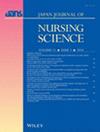Relationship between maternal postpartum depression, fatigue, sleep quality and infant growth: A cross-sectional study
Abstract
Background
Current research separately analyzed the connection between postpartum depression, fatigue, sleep and infant development. However, depression, fatigue and sleep quality often coexisted as adverse symptoms in postpartum women and influenced infant development together. This study explored the maternal postpartum symptoms on infant growth.
Methods
Our study included 224 pairs of singleton full-term mothers and their infants who underwent routine pediatric outpatient clinics. Latent profile analysis was applied to identify the latent classes based on mothers' postpartum depression, fatigue and sleep profile characteristics. We evaluated the maternal adverse symptoms and infant development using multivariable logistic regressions.
Results
Totally, 224 pairs of eligible mothers (28.85 ± 4.43 years) and infants (30.93 ± 3.26 days) participated in this study. Latent profile analysis identified 3 latent groups: mild (58.04%), moderate (34.37%), and severe (7.59%) postpartum adverse symptoms. Postpartum adverse symptoms were associated with delayed development in the baby's motor level (χ2 = 6.572, p = .037) and weight-for-length (χ2 = 9.652, p = .008). After controlling for mother and infant related factors, postpartum adverse symptoms remained a risk factor for infant motor level (odds ratio [OR]: 4.35; 95% confidence interval [CI]: 1.25–15.08) and weight-for-length (OR: 5.53; 95% CI: 1.55–19.74).
Conclusions
Maternal postpartum depression, fatigue and sleep quality are associated with infant development. Clinically, mothers with these symptoms should be intervened timely to avoid the aggravation of maternal symptoms, which affect baby's development.

 求助内容:
求助内容: 应助结果提醒方式:
应助结果提醒方式:


